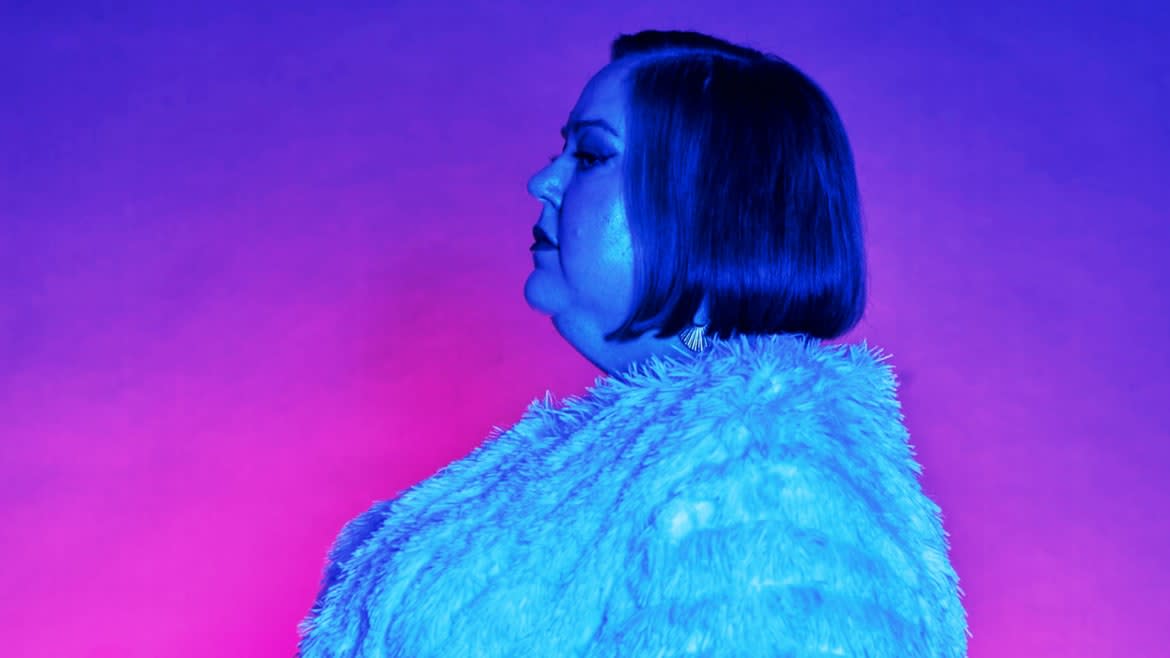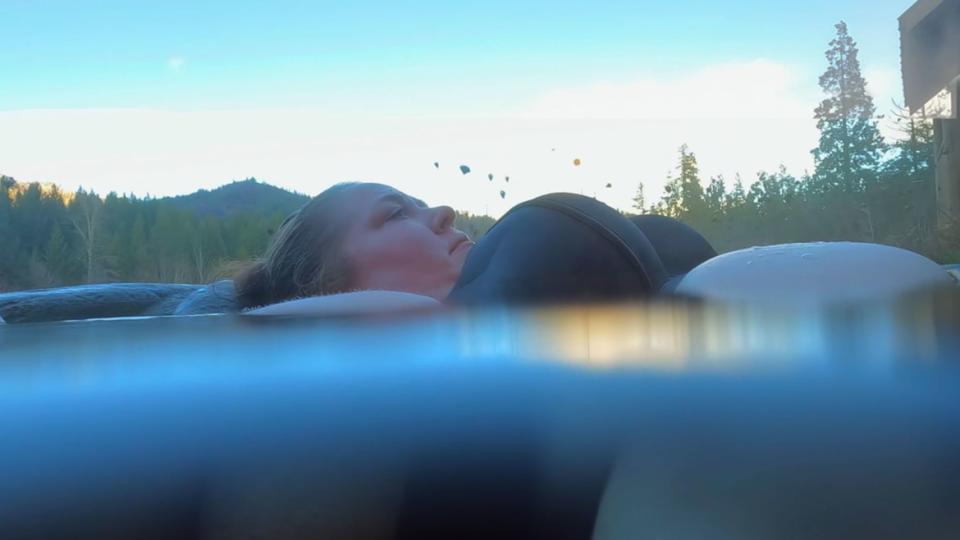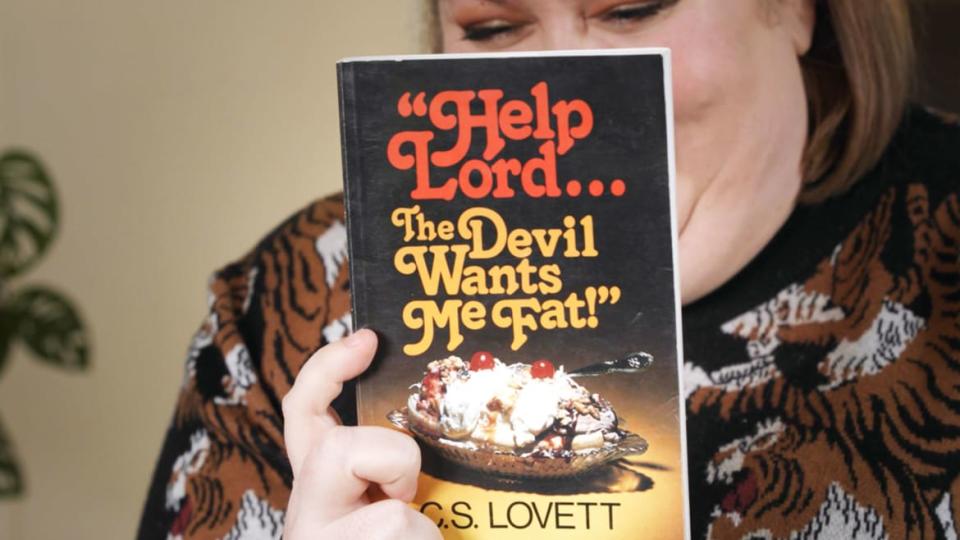‘Your Fat Friend’ Won’t Let You Look Away

- Oops!Something went wrong.Please try again later.
Aubrey Gordon became a viral sensation when she anonymously published her first essay in 2016 under the title, “A request from your fat friend: what I need when we talk about bodies.” Gordon’s piece, originally written to a personal acquaintance and published under the screen name “Your Fat Friend,” broke down the discomfort that fat people experience when their loved ones skirt the realities of fat bodies in casual conversation. The essay touched on the anxieties of fatness—planning traveling, seeking health care, eating with groups of people—and how apprehensions are only exacerbated by friends refusing to address the facts of another person’s body.
All of these subjects and more were discussed in-depth in later posts on Gordon’s blog, as well as in her book, What We Don’t Talk About When We Talk About Fat, and her podcast, Maintenance Phase. Gordon became a maven, praised by cultural pundits, celebrities, and readers around the world for her candid, courageous, and often comical musings on fatness. Her work sought to relieve shame, and make anyone who could relate to it just a little less preoccupied with assuaging other people’s discomfort.
Anyone who might’ve thought that someone who writes as confidently as Gordon must have it all figured out will be surprised by Your Fat Friend, a new documentary premiering out of Tribeca Film Festival. Director Jeanie Finlay follows Gordon through the process of writing her book, as the blogger prepares to give up her online anonymity and confront her fear of becoming a public figure in an unkind world. Your Fat Friend finds moving pertinence in Gordon’s story. It lets its subject—with her natural wit and almost unending empathy—try to fathom why it’s so difficult to allow ourselves to take up space in the world, and how important it is that we don’t degrade our spirits while trying.
Your Fat Friend opens with Gordon narrating an excerpt from that aforementioned initial essay, while the camera glides over shots of her body, wading in an Oregon hot spring. Gordon used to swim competitively as a child, and says that she used to love the feeling of freedom that being in the water gave her. But swimming is one of the many things that Gordon’s anxieties about her body, dovetailing with the faux “well-meaning” criticism from others, have taken from her. “It’s just more work than it’s worth,” she says. “The way that people look at you, the way that people talk to you, makes it hard to feel unleashed in that kind of way.”

Despite these fears situating themselves onto Gordon’s psyche since she was small, there’s no shortage of self-love present in her life. “I love being a great big fat lady with a little, tiny car,” she says, laughing, when talking about her favorite spot to write. She’s hindered not by her body, but by a world that isn’t made for it, and is not considerate of anyone like her. Bus and theater seats are a fear. Health-care providers turn a simple checkup into a medical lecture. Booking a plane ticket is the equivalent of setting sail on a sea of apprehension and steadily increasing nerves, until the dreaded day of the flight arrives.
Throughout the film, Gordon anatomizes America’s obsession with weight—and not having it. Old-school diet books with hilarious titles like More of Jesus, Less of Me and Help Lord… the Devil Wants Me Fat! line her bookshelves, both a fond collection and a reminder that society has been repackaging the same diets for the better portion of the last century. Diet culture, and the admonishment of it, are major aspects of Your Fat Friend, and Finlay’s sensitive direction knows just how to rebuke without reprimanding. Finlay and Gordon are both very aware that there’s a massive potential audience for this film for whom dieting has worked. They aren’t chiding those who partake in an inescapable phenomenon, but rather those who cash in on keeping people miserable inside of their bodies.
To write her book, Gordon must analyze how diet culture has affected her familial relationships, and in turn, the perception of her own body. Gordon watched her mother Pam try to lose weight, and as a teenager whose body was mimicking her mother’s genetic response to food, Gordon was eventually roped into diet programs herself, resulting in disordered eating that has plagued her life. She puts no onus for this on her mother, but it’s impossible for her not to talk about her relationship to food, dieting, and fatness without addressing her family’s response.

Your Fat Friend may feel somewhat pedantic to those already familiar with Gordon’s work, especially because half of the documentary is dedicated to repeatedly evaluating why the world exists in a state of direct conflict with her body, and others like it. But those who are less clued in about how fat people simply aren’t considered in the world will be moved by her accessible, pleasantly amiable approach to these subjects. “Your Fat Friend” is an appropriate moniker; Gordon doesn’t take joy in stern lecturing, she simply would like to be treated as human.
Attempting to find that thoughtful consideration in her mother, father, and extended family are the most difficult parts of Your Fat Friend. Gordon’s generalized discussion of fat-phobic culture is certainly important, but the film makes its points felt much more acutely when it focuses on Gordon’s family. Her father has difficulty even saying the word “fat,” despite his daughter’s insistence that it’s a perfectly fine descriptor to use when talking about her. Family Thanksgivings are equally as tough, watching Gordon’s extended family whip out lines that all of us surely have at one point or another, like, “Tonight, make sure you turn your scale 15 pounds backward.”
But the documentary becomes legitimately moving when Finlay starts to ask questions of Gordon’s mother. The film’s production has pushed Pam to consider the implications that her own dieting and self-perception might’ve had on her daughter. The precariousness of mother-daughter relationships—and the fervent desire to be a good parent, as well as what that might actually look like—come into the light. Watching Pam work out her own regrets, on camera, is a powerful juncture that softens the film’s more didactic moments, making Your Fat Friend feel like a new chapter for Gordon, separate from the writing that permeates the film.
Your Fat Friend is an engaging, if often unsurprising, documentary, that finds its stride when it moves into the personal. In fact, the film’s existence keeps Gordon’s intimate anxieties as a simmering undercurrent the entire time; agreeing to write her book, and do this film, means that she’ll have to face a world that is not built for her. She’ll have to fly on planes and open herself up to interviews and questioning just to promote it. But Your Fat Friend is an example of the gratification that comes with ardent, earnest work. Being out in the world is a far easier job when you can be proud of the person you are, in every sense.
Get the Daily Beast's biggest scoops and scandals delivered right to your inbox. Sign up now.
Stay informed and gain unlimited access to the Daily Beast's unmatched reporting. Subscribe now.

